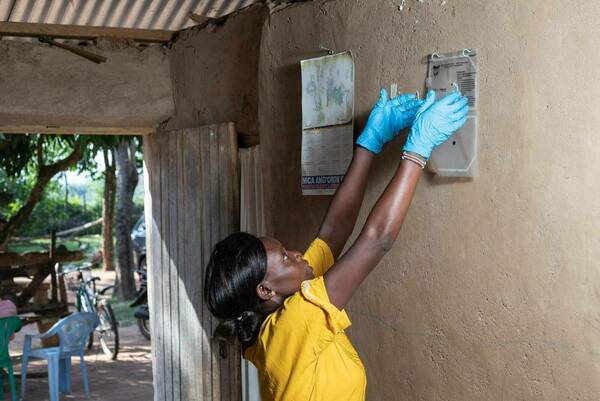From the Research Blog: "Ivo of Chartes, De adventu Domini (On the Advent of the Lord)"

Born around 1040, Ivo of Chartres is primarily known to modern scholarship as a canonist, and he is occasionally recognized as a prolific writer of letters, but relatively little regard has been given to his surviving collection of homilies [1]. This scholarly neglect has been most keenly demonstrated by the absence of critical editions of the sermons, despite the call of Roger Reynolds over thirty years ago, with the overall effect of reducing the quality of academic discourse on one of the more prominent liturgists of the period of the Investiture Controversy [2].
The text most commonly cited in scholarly literature, and the one used in my translation of this homily, is that published by Jacques Paul Migne in Patrologia Latina vol. 162, which is in turn based on previous editions by Fronteau and Hittorp. Although I was not able to consult them within the scope of this project, more than seventy manuscripts survive that contain some or all of the homilies included in the Migne edition. The most important would be Chartres, Bibliothèque Municipal 138, which formerly belonged to Chartres Cathedral, but it was heavily damaged in the Allied bombing of the city during the Second World War and is now largely unreadable...
This is an excerpt from "Ivo of Chartes, De adventu Domini (On the Advent of the Lord)," by Dr. Nick Kamas, published on October 16, 2024. Read the full story.
Originally published by at medieval.nd.edu on December 02, 2024.
Latest Research
- NSF Cyber SMART’s fall meeting shapes fifth year of project, legacy and future plans, and adds new memberThe U.S. National Science Foundation (NSF) Cyber SMART center gathered for its fall meeting on the University of Notre Dame campus this September. The meeting served as a checkpoint with progress reports and new projects from research leads and students…
- Slavic and Eurasian studies professor wins Humboldt fellowship to research how Russia’s religious past shapes its presentWhen Russia invaded Ukraine on Feb. 24, 2022, Sean Griffin realized his second book needed a new title. Griffin, an associate professor in the University of Notre Dame’s Department of…
- Notre Dame’s R.I.S.E. AI Conference builds interdisciplinary collaboration to inform human-centered artificial intelligenceAs artificial intelligence (AI) transforms nearly every sector of society — from healthcare and education to governance and global development — a critical question emerges: How can we conscientiously design and deploy these powerful technologies to positively impact society? This…
- University of Notre Dame joins the Global Coalition of Ukrainian StudiesThe University of Notre Dame has joined the Global Coalition of Ukrainian Studies after signing a Memorandum of Cooperation (MOC), formalized on September 24, 2025, at the Ukrainian Institute of America in New York City. Notre Dame joined four other American…
- The University of Notre Dame’s Mendoza College of Business and Industry Labs team up to inspire national security manufacturing competitiveness in the regionThe South Bend - Elkhart Region is full of manufacturing companies that are poised to grow, and Executive Master of Business Administration (EMBA) and Master of Business Administration (MBA) students at the University of Notre Dame are finding innovative ways to contribute to that growth. Earlier…
- Notre Dame research informs WHO conditional recommendation for spatial repellents in malaria vector controlThe World Health Organization (WHO) recently announced a “conditional recommendation” for spatial emanators, also known as “spatial repellents,” in the fight against malaria. This key determination was informed by spatial repellent studies that included the Advancing Evidence for the Global Implementation of Spatial Repellents (AEGIS) Project in Kenya, led by the University of Notre Dame and funded by Unitaid. The findings from this particular study were recently published in The Lancet.













